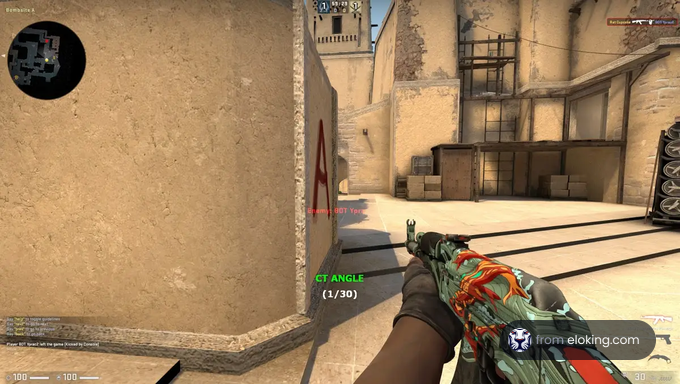Your Ultimate Hookup Resource
Explore a comprehensive directory for connections and relationships.
Why Griefing Penalties in CS2 Are the Real Game Changer
Discover why griefing penalties in CS2 revolutionize gameplay and create a fairer gaming experience. Don't miss out on this game-changing insight!
Understanding Griefing Penalties: How CS2 is Shaping Player Behavior
In the world of competitive gaming, player behavior can significantly influence the overall experience. Griefing, a term used to describe actions intended to sabotage or annoy teammates, has been a longstanding issue in multiplayer games like CS2 (Counter-Strike 2). To combat this disruptive behavior, CS2 has implemented a range of penalties aimed at discouraging such actions. These penalties are not only designed to keep the gameplay fair, but they also promote a more positive community by rewarding players who embrace teamwork and sportsmanship. Understanding these griefing penalties is crucial for players who want to maintain a good standing within the game.
CS2’s approach to griefing penalties includes several measures that aim to educate players about the consequences of their actions. For example, players found engaging in unfair practices may receive temporary bans or have their matchmaking ranks adjusted. These methods serve as a deterrent, encouraging players to adapt their behavior. Furthermore, the game offers in-game reporting features that empower the community to hold players accountable. By creating a culture that prioritizes fair play, CS2 not only enhances the gaming experience but also shapes player behavior, fostering a community where respect and cooperation are valued.

Counter-Strike is a popular tactical first-person shooter franchise that has captivated gamers worldwide. Players can engage in intense matches, strategizing to eliminate opponents or complete objectives. One of the recent additions to the game includes the dreams nightmares case, which introduces new skins and items for players to collect and trade.
The Impact of Griefing Penalties on CS2's Competitive Scene
In the evolving landscape of Counter-Strike 2 (CS2)'s competitive scene, the introduction of griefing penalties has sparked considerable discussion among players and analysts alike. These penalties are designed to discourage disruptive behavior that not only affects individual performance but also undermines the integrity of the game. By implementing strict consequences for players who engage in griefing, such as temporary bans or point deductions, the developers aim to foster a more respectful and focused environment. Players are increasingly aware that their behavior is being monitored, encouraging them to adhere to competitive standards and promote teamwork.
Moreover, the impact of these griefing penalties extends beyond individual matches; it shapes the overall culture within the CS2 community. According to recent surveys, players report feeling more secure and less anxious about team dynamics as a direct result of these regulations. The long-term effects could lead to a more cohesive competitive scene, where players are motivated to collaborate effectively rather than risk penalties that could jeopardize their ranking. As such, the ongoing evaluation and adjustment of these policies will be crucial in maintaining a healthy balance between competitive integrity and player freedom in the CS2 ecosystem.
Are Griefing Penalties in CS2 Enough to Deter Toxic Behavior?
In the competitive landscape of CS2, the introduction of griefing penalties has sparked a heated debate among players and the gaming community. Many argue that these penalties, which can range from temporary suspensions to permanent bans, are crucial in maintaining a healthy game environment. However, others believe that the current measures are insufficient to deter toxic behavior effectively, raising the question: Are griefing penalties in CS2 enough to deter toxic behavior?
Those in favor of stricter penalties point to the negative impact that griefing has on the overall gaming experience. For instance, a recent survey conducted among players highlighted that over 70% reported having encountered griefers in their matches. This not only diminishes enjoyment but can also drive away new players from the community. On the other hand, critics argue that the existing penalties do little to address the root causes of toxic behavior, which often stem from frustration and competitive pressure. Ultimately, finding a balance between punishment and promoting positive interactions may be essential for cultivating a healthier gaming environment.